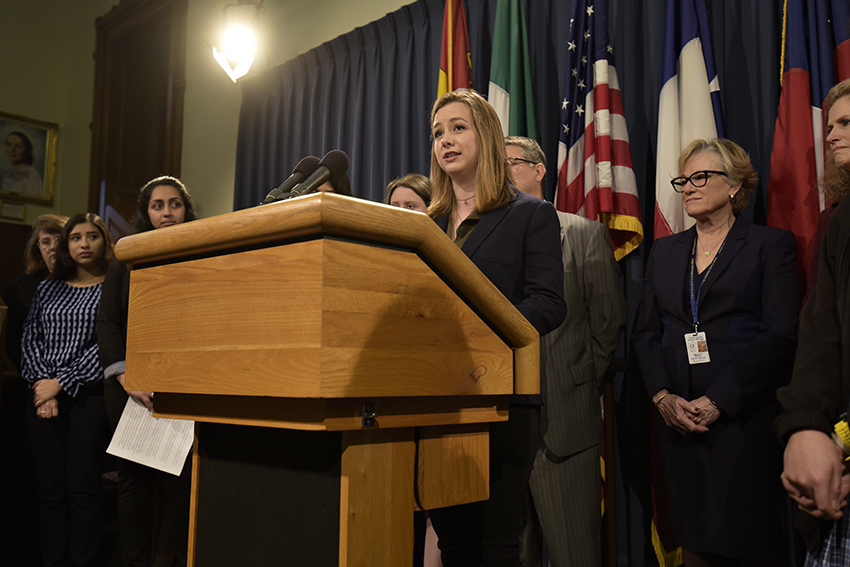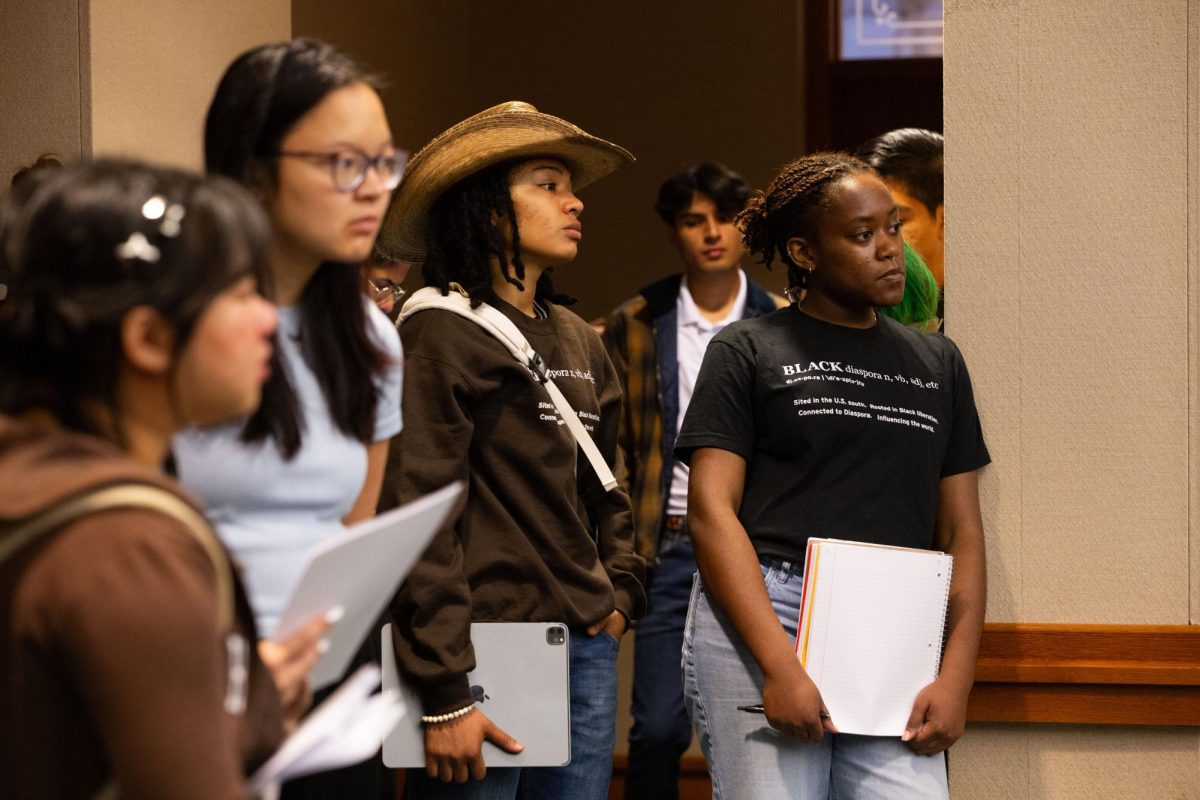Sexual assault survivors and advocates gathered with state legislators Monday morning at the Texas State Capitol to share their experiences with sexual assault and express support for sexual assault legislation being introduced this session.
Nine senate bills and ten house bills have been filed to address sexual assault prevention and resource expansion for survivors by state legislators in both parties, including state Sen. Kirk Watson, D-Austin, who initiated the press conference. One house bill relating to the establishment of the Office of Sexual Assault Survivors in the governor’s office was drafted by state Rep. Donna Howard, D-Austin, but has not yet been filed.
Among the first bills discussed were Senate Bill 1 and House Bill 1, which increase funding for rape crisis centers and expand access to Sexual Assault Nurse Examiners. SB 1, filed by state Sen. Jane Nelson, R-Flower Mound, also allots nearly $50 million to double the Department of Public Safety Crime Labs’ capacity to test rape kits as backlogged rape kits are an issue survivors face in seeking justice.
Survivor and advocate Rhea Shahane said she has talked to people of color who felt they could not come forward with their case because they felt sexual assault is a “white person issue.” Shahane, a Plan II honors, history, and government senior, said some Asian languages do not even have the word “rape” in their vocabulary, which is reflective of how religion, rigid gender roles, family structures and cultural norms prevent survivors from coming forward about sexual assault. Shahane voiced her support for HB 282, filed by state Rep. Victoria Neave, D-Dallas, which would expand peace officer training on sexual violence.
“It is crucial that when people do report, they are met with trauma- and culturally informed peace officers who can help them navigate the system while keeping in mind the certain cultural level challenges that these survivors have to overcome in coming forward,” Shahane said.
Tatum Zeko, president of UT’s chapter of Deeds Not Words, a nonprofit sexual assault prevention organization, said she has been recommending people to report cases to the University’s Title IX Office since freshman year. Zeko said she has never felt more worried about the status of the Title IX Office in light of recent “regressive” proposals by the U.S. Department of Education to limit the accountability of universities. Zeko said she supports SB 585, filed by Watson, which would set up survivor-centered protocols for colleges to ensure the appropriate treatment of survivors.
“This should not be my reality,” English senior Zeko said. “It should not be my job to take care of sexual assault survivors while the Department of Education continues to tell us that the two percent of false accusations deserve more help than my 1 in 5 women … and 1 in 20 men (at UT).”
Nearly all the speakers said they were grateful for the bipartisan support on the issue of sexual assault, but Watson said he was grateful for survivors’ courage to share their stories, emphasizing they were the reason for bipartisan agreement.
“We are making progress because of the survivors and the people that are willing to speak out on this issue,” Watson said. “The momentum we have that has been created by powerful, courageous voices of survivors is creating bipartisan agreement on how we need to address this issue.”


















